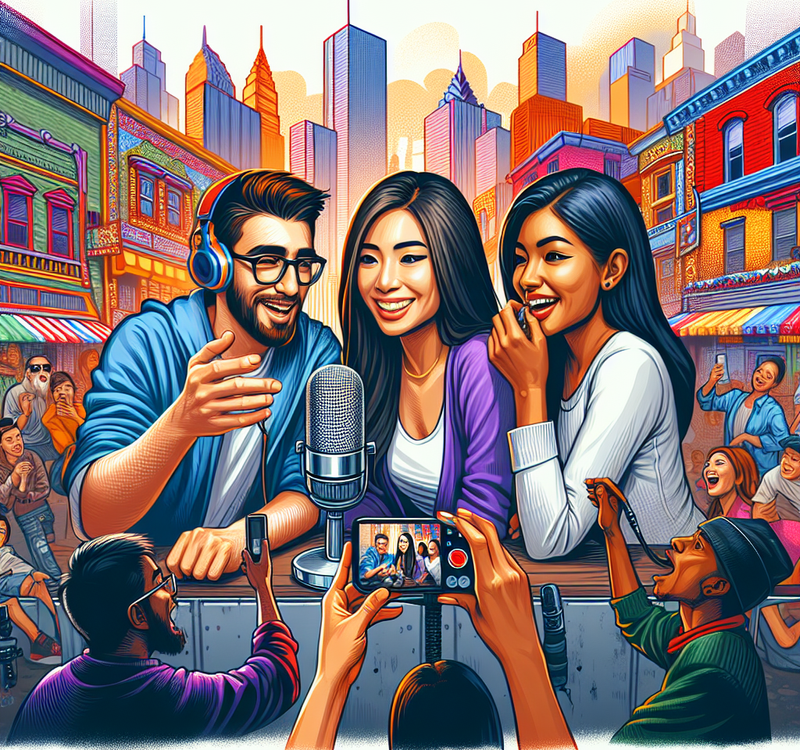Boost Your Brand Safety with Influencer Partnerships: A Guide to Maximizing Success
4 September، 2023
The Emerging Landscape of Arab Influencers: Navigating Challenges for a Lasting Impact
4 September، 2023Exposed: The Dark Side of Micro Influencers – Unveiling the Deception and Fake Followers
Exposed: The Dark Side of Micro Influencers – Unveiling the Deception and Fake Followers
Keywords:
What is the dark side of influencers?
Why do influencers buy fake followers?
Do influencers use fake followers?
How to check if influencers have fake followers?
Introduction:
In today's digital age, social media influencers have gained immense popularity and have become an integral part of marketing strategies for many brands. With their large following and ability to influence consumer behavior, micro influencers have emerged as a powerful tool for promoting products and services. However, there is a dark side to the influencer industry that often goes unseen – the prevalence of deception and fake followers. In this article, we will delve into the world of micro influencers, uncovering the truth behind the deception and fake followers that plague this industry.
The Dark Side of Influencers:
Micro influencers are individuals who have a smaller but highly engaged audience on social media platforms. These influencers are often seen as more relatable and authentic compared to macro influencers with millions of followers. However, this authenticity can be easily manipulated through the use of fake followers. Influencers may resort to buying followers in order to portray a larger audience and gain credibility in the eyes of brands and followers.
So why do influencers buy fake followers? The main reason is to boost their social media presence and appear more influential than they actually are. This can lead to lucrative partnerships with brands, who often base their decision to collaborate with influencers on the size of their following. Influencers believe that having a large follower count will attract more brand deals and increase their chances of success in the industry.
Do influencers use fake followers? While not all influencers engage in this deceptive practice, it is prevalent among some. By artificially inflating their follower count, influencers can create a perception of popularity and influence. This can be detrimental to both brands and genuine influencers who are overshadowed by those with fake followers. It compromises the integrity of the industry and erodes consumer trust in influencers as a whole.
Detecting Fake Followers:
Brands and followers alike need to be vigilant in order to identify influencers with fake followers. Several methods can be used to check if influencers have fake followers. One of the most effective ways is to look for abnormal follower growth patterns. Genuine influencers experience steady and organic growth over time, while those with fake followers often experience sudden spikes in follower count. Tools such as Social Blade can provide insights into an influencer's follower growth and detect any anomalies.
Engagement rate is another crucial factor to consider. Influencers with a high number of followers but low engagement, such as likes, comments, and shares, may indicate a presence of fake followers. Genuine influencers have an engaged audience that actively interacts with their content. Analyzing the ratio of engagement to follower count can help in spotting influencers with fake followers.
Conclusion:
The dark side of micro influencers cannot be overlooked. The prevalence of deception and fake followers poses a significant challenge to the authenticity and credibility of the influencer industry. Brands and followers need to exercise caution and employ strategies to detect and avoid influencers with fake followers. By promoting transparency and integrity, the industry can regain trust and ensure that genuine influencers receive the recognition they deserve.
FAQs:
-
Can influencers with fake followers still have an impact on brand promotions?
Yes, influencers with fake followers can still create a buzz around brand promotions. However, the impact may not be as significant as those with genuine followers. Real engagement and authenticity are crucial for successful brand partnerships. -
Are all micro influencers involved in buying fake followers?
Not all micro influencers engage in this practice. Many value authenticity and build their following organically. It is important to separate those who resort to deception from the genuine influencers who work hard to create valuable content. -
How can brands protect themselves from collaborating with influencers with fake followers?
Brands can conduct thorough research and employ tools to analyze an influencer's follower growth and engagement rate. Working with influencer marketing agencies that have expertise in identifying fake followers can also help ensure brand collaborations are with genuine influencers. -
What are the long-term consequences of engaging with influencers with fake followers?
Engaging with influencers with fake followers can damage a brand's reputation and trust among consumers. It can also waste marketing resources as the impact of the collaboration may not be as significant as anticipated. -
Is the influencer industry taking steps to combat the issue of fake followers?
Yes, the influencer industry is becoming increasingly aware of the issue and taking steps to combat fake followers. Social media platforms are implementing stricter policies to detect and remove accounts with fake followers, and brands are becoming more cautious in their selection of influencers.



